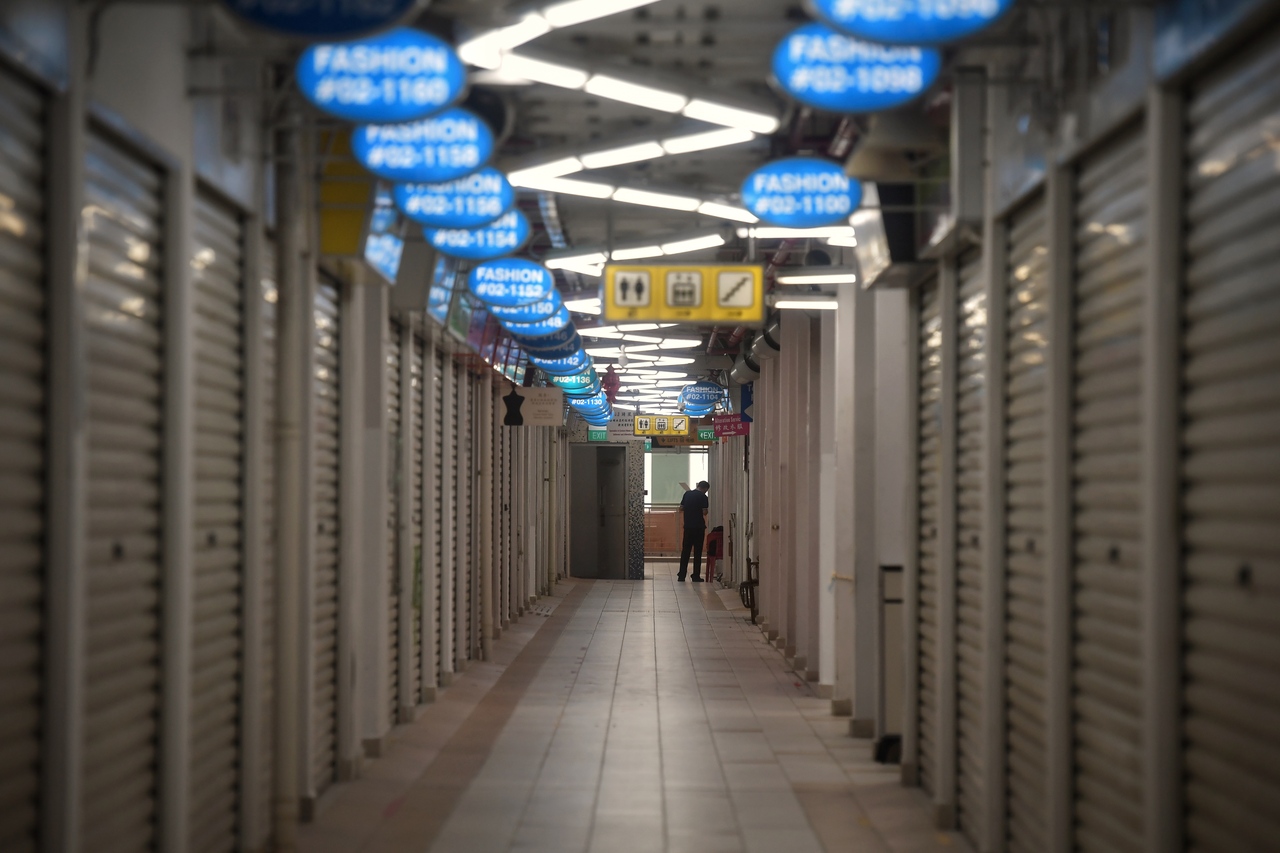Landlords must match Govt's 2-week rental support for tenants during tightened Covid-19 curbs
Sign up now: Get ST's newsletters delivered to your inbox

Many commercial tenants have asked the authorities to intervene and mandate landlords to extend rental relief.
ST PHOTO: KUA CHEE SIONG
SINGAPORE - Commercial landlords will be required to match the two-week rental support provided by the Government to tenants during Singapore's phase two (heightened alert) measures.
This was announced by Finance Minister Lawrence Wong in Parliament on Monday (July 26) during a ministerial statement on support measures for workers and businesses amid tightened restrictions.
Mr Wong noted that the Government had not required private landlords to extend rental relief to tenants during the earlier heightened alert phase from May to June.
Instead, it encouraged landlords to do their part to match the Government relief - a two-week rental relief cash payout to qualifying small and medium-sized enterprises and non-profit organisations.
"However, many tenants, especially those in the affected F&B (food and beverage) and retail sectors, have told us that not all landlords were forthcoming in providing such rental support," Mr Wong said.
"This time, in light of the difficulties faced by many businesses, the Government intends to require landlords to provide a matching two-week rental support to their tenants."
More details will be announced by the Ministry of Law, Mr Wong noted.
Many commercial tenants have asked the authorities to intervene and mandate landlords to extend rental relief, he noted.
The Government is providing four weeks of rental waiver for qualifying tenants of government-owned commercial properties for the period from July 22 to Aug 18.
Qualifying tenant-occupiers and owner-occupiers of privately owned commercial properties will receive a two-week rental relief direct cash payout under the Rental Support Scheme.
Small and medium-sized enterprises (SMEs) and eligible non-profit organisations with an annual revenue not exceeding $100 million qualify for these relief measures, which are part of the latest round of Government support which is expected to cost $1.1 billion.
Mr Wong said the Government's starting point is always "the sanctity of contract" and that it does not intervene lightly.
"But we are prepared to intervene in specific situations, and in a carefully scoped manner, and we decided to do so last year, when we introduced emergency measures during the circuit breaker."
He added that the government recognises that not all landlords are in the same financial situation and some may have difficulty sharing the burden with their tenants.
"So for landlords which are genuinely facing hardship, we will put in place a process to take their circumstances into consideration," he said.
Earlier this month, businesses including retailers and F&B operators had called for landlords to take on a "fair share" of the burden when restrictions are tightened, by providing rental rebates commensurate with the revenue impact on tenants.
A spokesman for the Alliance of Frontline Business Trade Associations, which represents thousands of SMEs, retailers and F&B operators, said on Monday that it welcomes the move.
"We hope to work positively with landlords as interdependent partners to put in place a mechanism of fair rental burden sharing that will come into play in the unlikely event that we have an outbreak that leads to severe social restrictions again," he added.
Restaurant Association of Singapore president Andrew Kwan added that the association will continue to appeal to every landlord to work closely with tenants to provide rental rebates in a timely manner.
Commercial landlords Frasers Property Retail and City Developments Limited, in response to queries from The Straits Times, reiterated that they would support tenants, through means such as rental rebates and operational support.
Last year, under the Covid-19 (Temporary Measures) Act, eligible tenants and sub-tenants at commercial properties could receive up to four months of rent waived - two months each borne by the Government and the landlord.
The rental relief framework had provided for mandated equitable co-sharing of rental obligations between the Government, landlords and tenants.
At the time, the enhancements to the Act came as many SME tenants were grappling with the challenges of a slower economy amid Covid-19 and not all had received relief from their landlords.


